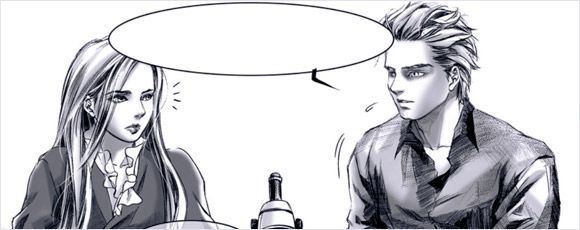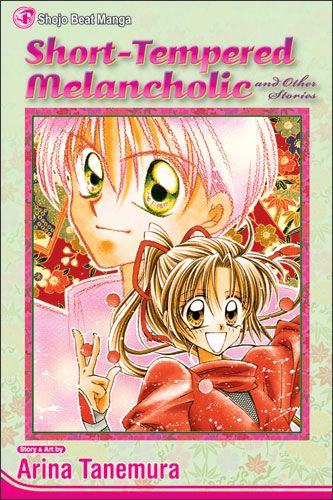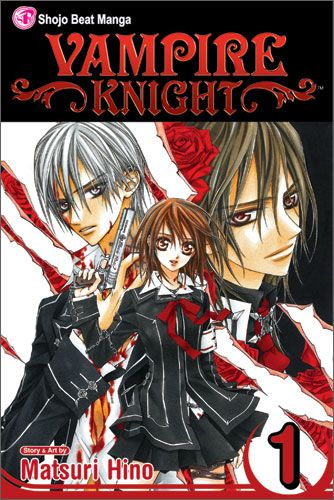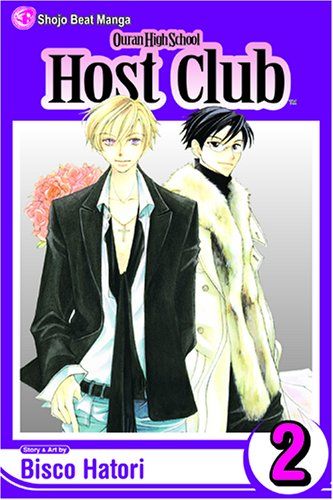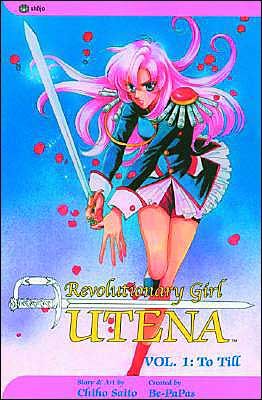This week’s controversy over the scheduling of a Twilight movie at San Diego Comic-Con raised an issue that we at Good Comics for Kids have been thinking about for a while: Why don’t girls’ comics (and their other enthusiasms, for that matter) get any respect? Even the comics bloggers who leaped to defend the Twilight fans often speak with contempt of genres aimed at tween and teen girls, an attitude that was on full display later this week when Yen Press announced it would be publishing a Twilight manga.
So I sent out the Bat-Signal to my fellow Good Comics for Kids bloggers and asked what they thought.
Robin Brenner: I find it especially distressing that the SDCC crowd, made up of fans who have been typically dismissed and marginalized by the larger culture including comics fans, fantasy fans, and sci-fi fans, seem to think it's perfectly warranted to dump on fans who you would think they have a lot more in common with than traits to divide them.
At anime cons you can witness the particular breed of enthusiasm teenage girls bring to the table: the ear-shattering squeals, the glomping, the elaborate and fantastic costumes, and the intensity of fannish behavior on display. I admit, the old-fogey part of my brain does startle at the sheer decibel level teen girls can reach, but at the end of the day, I have to smile: how brilliant is it that fans are so excited, so devoted, that they now represent a substantial fan audience? As someone who's been a part of fandoms that have been dominated by men for, well, pretty much my entire life (including science fiction, fantasy, and comics), it's refreshing to see women and girls get some attention.
Not so at Comic-Con. The last time I attended, I was struck by how different it felt than my local anime cons, and there was always this edge of awareness that this world tolerated me, but it wasn't really courting me nor acknowledging me as a fan. I do think that came down to my being both a woman and a manga fan, as well as the fact that while I am a fan of comics in general, there is less at San Diego that is geared for me or would have been inviting to any of the teenage girls I work with every day. In fact, much of it was intimidating and dismissive. I can only imagine how much more teenage girls felt ignored.
Women and teenage girls are described as invaders. Well, remember, we do represent half the population, and if you want comics to survive in the long run, stop treating us like aliens coming in to muck up your well-laid plans.
Esther Keller: As a school librarian, I see that the girls are far more enthusiastic about what they're reading than the guys. Seven years ago, when I ventured into the world of comics, it was still marginalized by much of the adult population. It was the advocacy of librarians (let's face it, we are still a predominantly female vocation) and teachers (again, predominantly female) that helped comics gain the respect it deserves. Considering what women have done for the comics industry, why is this disdainful attitude out there? Are the men intimidated by us?
Kate Dacey: For me, it's comments such as these that truly rankle:
"And now, you want to talk about the TWILIGHT fans. Hell, Val they aren't even fans of the story. They just want the actors. If it was just author Stephanie Meyer there, and no movie, no actors, the turn out would be just about nil."
"I am not going to insult women by being Ok with their fandom of complete rubbish. It's like if they were superfans of Highlander 2 or the works of L Ron Hubbard or Dan Brown... Having said all that, I have not read or seen Twilight. I just go by the opinions of my intelligent female friends and the critics I like to read."
What bothers me most is the underlying assumption that girls (and women) don't know how to be proper fans, that they're only there for the hot guys and couldn't care less about the books or the creator—an assumption that ignores the fact that girls' voracious reading habits helped put Twilight on the map in the first place, and suggests that their investment in the story is purely superficial. The other thing that bothers me about these statements is that many of the folks dissing Twilight have never read it or watched the movie, yet they feel perfectly qualified to assess its merits solely on the basis of who likes it. Teen girls love it, ergo it must be junk.
Esther: If Stephenie Meyer attended Comic-Con, there would be a huge presence. I can name at least 50 young ladies from my school who'd want to fly over to San Diego to meet her. They "stalked" Robert Pattinson and Stephenie Meyers equally. Personally, I enjoyed Twilight. I enjoyed the enthusiasm for the books way more than the books themselves. I loved it when I couldn't get one of my 8th graders to shut up until I finally read Eclipse, and that this year I didn't have any copies of Twilight on the shelf until the end of May. Some of these girls can pick out details that I probably never processed. So Kate, I'll have to concur, the people posting just don't see how involved these fans do get into the details of the story. They choose to close their eyes, because it's inconveniencing them and the fandoms they want to concentrate on.
Robin: Frankly, I find it bizarre that these classic comics fans, many of whom could teach a course on Silver Age comics and all the permutations of, say, the X-Men, completely dismiss fans being exactly the same way about what is undoubtedly female-driven literature: supernatural romance. I'm particularly intrigued by the comment about Dan Brown—whatever I may think of the quality of any of these books, why is it fine to dismiss the legions of fans these tales have?
Lori Henderson: Until now, there hasn't been a reaction to girls like this at SDCC that I've seen in the last 20 some years that I've been going. If anything, girls had been welcomed. SDCC is so big now that these reactions to Twilight and its fans are downright discriminatory. Has it always been this way and I just never noticed? Or have attitudes toward women in comics changed in the last 10 years?
It's been brought up that Marvel and especially DC have a misogynistic view of women, and objectify them more than try to appeal to them, so is this reaction a reflection of the companies’ portrayals of women, or have the companies just been portraying women as their fans see them and we're only just now see the true face of comic fandom?
These men need to change their attitude toward women, and that change should start at the comic companies that perpetuate them. They need to stop portraying women as objects and start as real people with real lives.
Kate: Now that Yen Press has announced that it will be publishing a Twilight manga, I'm fearing a second backlash against young female con-goers, since there are still a core group of tights-and-capes fans who dismiss manga as "comix for chicks." Tom Crippen's recent post at The Hooded Utilitarian exemplifies what I'm talking about:
I don't get manga. I look at a page and want to look away. Reason: the stylization of figures appears to me to be highly uniform, and it's not a particular stylization I like. Solid black hair, googly eyes, the kids who look like adults, the adults who look like kids, etc. The look turns me off. Further, its kindergarten feel makes it hard for me to believe worthwhile stories could be told using this stylization, or at least told to their advantage... Because my aversion to manga is so sharp and immediate, I have never given the comics a chance... I should have asked straight out: What am I missing? ... Point one: the googly eyes, etc., belong to just one style of manga. The girls' stuff, apparently. There are lots more out there.
Once again, girls' taste is being called into question: how could they like something so divorced from reality that it has a "kindergarten feel" that's ill-suited to "worthwhile stories"? This unwillingness to try and understand why manga—or, for that matter, Twilight—appeals to girls is maddening. I respect Crippen's right to dislike this particular approach to storytelling, but it's frustrating to read blanket dismissals of the medium that are couched in sexist, condescending language like this.
Sabrina Fritz: I have read all of the Twilight books, and I thought that while they weren't the worst thing that I've ever read, they also weren't the best, and I don't think they necessarily deserve the fanbase that they've garnered. That said, I'll give the manga a try with an open mind and see how it turns out.
Esther: This vehemence against manga and pigeon holing the format as something that's just for girls is ridiculous. Yes, the guys who come to my library love super hero comics, but they also read manga. They like the manga oriented to them. Naruto, Bleach, SGT Frog, Dragon Eye, Hoshin Engin, Hikaru No Go..... Oh and BTW, I had plenty of guys borrowing Twilight this year. This gives me hope. The young men I work with will be a lot more accepting and respectful to women and their tastes than the men who are supposedly their role models.
Robin: I agree, Lori, that the change needs to come from within—from both the publishers and the fans. When I was last at Comic-Con, I attended a lovely dinner with a few women but mostly men, and at one point the conversation turned to why we women had pretty much stopped reading superhero comics and were now more drawn to manga. The gentlemen at the table, all great guys and fans and not at all the type that would spew bile aimed at girls, nonetheless were completely puzzled as to why women would be so bothered by the way female superheroes are drawn (not the writing, but the pin-up style art that is prevalent). I had a tough time explaining it at the time, but the next morning I came up with the right switch that got them thinking: what if we took Batman, dressed him up in a thong, and sent him out to fight crime, all the while featuring many panels of him lounging around in his bedroom or talking on the phone in a tiny towel. When I mentioned this to a few of my (straight) male comics fan friends, their reaction was very much a look of horror and an exclamation of, "I don't want to see that!" My response was "...And so you see my point."
Esther, I think you make a good point—that a lot of the current fans, the teenagers themselves, do not have even remotely the same baggage as many adult fans do, nor are they even aware of the various schisms. My teens all read everything, but by and large they read more manga (guys and girls both) than Western comics at this point. Everything is much more cross-media and cross-gender to my teens, and they are far less worried about who reads what than my generation was/is. I too had a lot of guys checking out Twilight, sometimes just to understand why all the girls were so ablaze, and, as one teen guy put it, "Vampires and werewolves. They fight. That's cool." As these guys grow up (and I hope this is true of some of the younger fans in their 20s and 30s that have also embraced manga and indie comics), they're likely going to scratch their heads in confusion about such hullaballoos.
Lori: Twilight doesn't need the "manga style" to get an audience, but a graphic novel in the manga format will fit perfectly in the YA book section next to the Twilight novels. Format isn't really the issue with these commenters though. Manga haters are going to hate manga no matter what the subject it, and comic fans are going to hate a graphic Twilight no matter the format, or even if Alex Ross did the art. The problem is the attitude toward teen girls and women who want to enjoy comics without the objectification.
Eva Volin: The librarian half of my brain wants to sit the fanboys down and explain to them about the birds and the bees, about brain development, and the statistics on reading patterns and buying habits of girls vs. boys. To remind them that teenage girls have expendable incomes, too, and ask if they’d really rather the girls spend that money somewhere else, like at a chain bookstore, or Hot Topic, or on eBay. Or at the booths in the dealers rooms where they sell cell phone charms of Naruto characters or the twins from Ouran High School Host Club. The librarian half of my brain wants to reason with people who would rather stomp their feet than get with the program and embrace this new generation of fan—a generation who, if encouraged, could save the comics industry.
But the fact that this argument has surfaced again, and that the comments have been so sarcastic and hateful, tells me that rational thought is not welcome here. And the fangirl half of my brain is pissed. How dare you tell me that Twilight fans aren’t “normal people,” you, who counted with pride the number of times you saw Star Wars? Posts and comments like these tell me that, even after being a comic book reader and fan for twenty-five years, I’m still not welcome. They tell me that I should expect to have my favorite books looked down upon. That the books I enjoy are too “kindergarten” and too obviously for girls to be worth a second look. That because I have two X chromosomes I need to have sequential art explained to me in small words and if I’m in a comic book shop it must be because I’m there to buy books for my son or nephew. And to all of that I say, “Bite. Me.”
I’m going to SDCC. I’m going to line up to see the panels I’m interested in. I’m going to cheer for the artists whose work I enjoy. I’m going to ask questions and get autographs and maybe even do a little cosplaying. And I’m going to spend money at booths that have the merchandise I’m interested in. Lots of money. And if you don’t want my business, don’t worry. Call it women’s intuition, but I’ll be able to tell. And I’ll remember. And I’ll take my business, as well as my nieces' and their friends' business, to someone else's booth.
Robin Brenner is teen librarian at the Brookline Public Library and a former Eisner judge and Eisner nominee; Kate Dacey is a grad student and manga blogger; Lori Henderson is a manga blogger and the mother of two pre-teen girls; Esther Keller is a school media specialist in Brooklyn, NY; Eva Volin is the supervising children’s librarian for the Alameda Free Library in Alameda, CA, and a former Eisner judge; Sabrina Fritz is a 16-year-old manga blogger.

